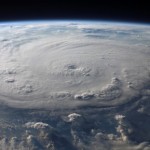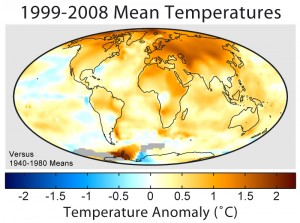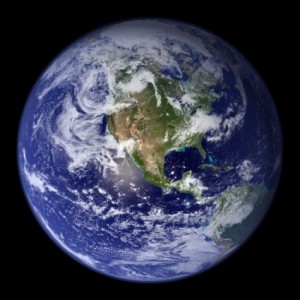Rural Climate Change – What Does Global Warming and Climate Change Mean To Rural America?
 The Three-Stage Effect of Rural Climate Change – A 2014 Global Warming Update For Rural America From Arizona Air Conditioning Service Center, American Cooling and Heating
The Three-Stage Effect of Rural Climate Change – A 2014 Global Warming Update For Rural America From Arizona Air Conditioning Service Center, American Cooling and Heating
“Climate change and the associated accumulation of global warming directly impacts rural economies and rural populations. According to the Rural Policy Research Institute, current and future climate change legislation will affect rural landscapes, rural prosperity and rural livelihoods (1),” Phoenix ACH research department.
The Three-Stage Cause and Effects of Rural Climate Change
Climate change as defined by a layperson might simply declare global warming the result of man-inflamed changes in global climate. Such a brief definition would not be far off base. However, the official definition from the UN Intergovernmental Panel on Climate Change (IPCC) establishes a three-point structure behind such shifts in climate. The process is as follows:
- Either directly or indirectly, human activities alter the composition of the global atmosphere
- The changes aggravated by human activities increase the natural variances in climate shifts
- The difference between human provoked changes and the natural shifts in climate can be measured and applied to a comparable time frame (2).
Since the IPCC definition focuses directly to human activities, each segment of society experiences a slightly different process of causes, effects and solutions. For rural U.S. communities, the effects of climate change impacts three primary components of life.
- The economics and the populations of the rural region
- The changes to rural prosperity and rural methods of earning a livelihood as a result of ongoing policies and legislation for mitigation and adaptation
- AND the effects of mitigation and adaptation on the management of rural landscapes.
The rural economy thrives on the natural environment. From agricultural land to watersheds and from fisheries to range-lands, rural communities stand as stewards for the nation. The effects of rural climate change are both positive and negative. Increased levels of carbon dioxide promote quicker and stronger plant growth. However, changes in the atmospheric patterns of precipitation promote water-related complications including droughts, floods, and an increased risk of extreme storms in all areas.
Rural climate change also increases the risks assumed by climate-vulnerable individuals. From seniors to children and from the poor to the destitute, many rural individuals and  groups fall into a unique danger zone defined as the “climate gap,” a concept that is primarily associated with the less physically adaptable or less economically adaptable members of U.S. rural society.
groups fall into a unique danger zone defined as the “climate gap,” a concept that is primarily associated with the less physically adaptable or less economically adaptable members of U.S. rural society.
Reports from various economic studies indicate that climate change may seriously reduce job opportunities in the agriculture sector of U.S. employment. Furthermore, the current and future “climate crisis” solutions will likely increase the costs related to rural farming and food production. Thus those members of society who fall into the “climate gap” may be forced to struggle even harder for both food and survival.
For many senior citizens and many of the people who are too poor to afford adequate health care, home air conditioning, and other protection from extreme weather, the “climate Rural Climate Change gap” will continue to widen both in inner city communities and in rural communities. Yet according to the Ford Foundation, many of the current climate change policies are flawed and actually increase the vulnerability of people in rural communities (3). U.S. policy makers must keep a close eye on closing the gaps. Research, networking among organizations, and communications help level the playing field, but this aspect of the cause and effect of global warming is far from secure;
What Does Global Warming and Climate Change Mean To Rural America?
Rural communities are responsible for a significant measure of climate change. For example: Rural agricultural emissions kick out up to six-percent of the U.S. annual GGE disturbances. A lack of public transportation in rural areas amplifies the problem, and even those rural residents with personal transportation typically travel longer distances than their urban neighbors.
Furthermore, the effects of greenhouse gas mitigation in rural areas is regional uneven. Big competitors in the food market produce the greater potential for generating greenhouse gases. Regions such as the Rockies and the Southwest are least responsible for greenhouse gases. Yet each group falls under certain aspects of the national mitigation and adaptation policies and strategies
The process of global warming management and control requires an overall integrated approach that includes:
- Policy tools
- Application of renewable energy resources Investment in on-going climate change research
- Renewed attention to energy conservation
- Better management of forests, range-lands and wetlands
- Advanced methods for preventing complications associated with fire and erosion
- New agricultural practices dedicated to reduced emissions, changes in livestock feed products, better farming practices and better control of rotational grazing.
Every local and state region has crafted some measures for managing man-evoked changes in the Earth’s climate. The IPCC presented the results of studies and projections. More policies and rules are yet to come. Understanding how climate change, global warming and all the upcoming rules and regulations will affect rural America is still a question in the making. Meantime, rural America is already mixed up in the struggles.
Global warming and climate change series presented by American Cooling and Heating, Arizona HVAC Sales and Service for Trane, Amana, Goodman, Rheem, Carrier and all other major HVAC brands. For information on current ACH 2014 A/C product promotions, contact: https://americancoolingandheating.com
Disclaimer:
This article and its content do not constitute legal, financial, technical, or medical advice. While every reasonable effort has been made to ensure that this document is correct at the time of publication, the company and its employees and agents disclaim any and all liability to any person in respect of anything or the consequences of anything done or omitted to be done in reliance upon the whole or any part of this article and its content. All trademarks, logos, and associated content displayed are the property of their respective owners.
- http://www.rupri.org/Forms/Climate_Change_Brief.pdf
- http://ipcc-wg2.gov/AR5/report/final-drafts
- http://www.fordfoundation.org/issues/sustainable-development/climate-change-responses-that-strengthen-rural-communities


